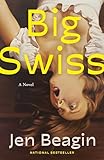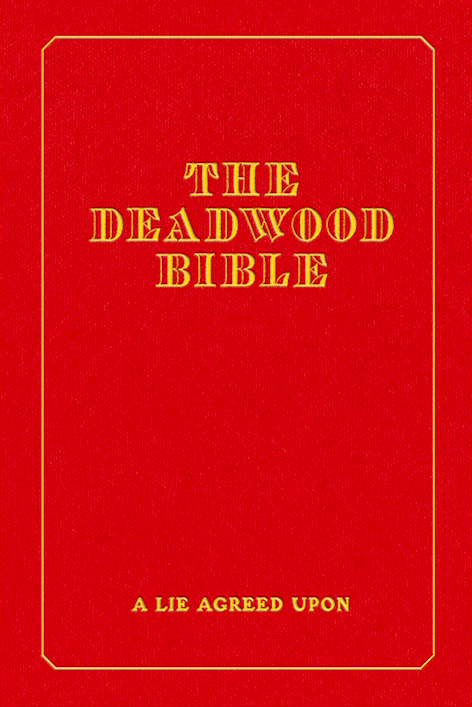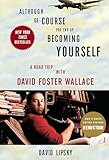This year my attention span was worse than ever; I found myself actually stopping to watch when one of those split-screen TikToks with a really intense Grey’s Anatomy scene playing on one side while someone cuts soap or scoops slime out of a bucket on the other side would come up on my feed. I’m as worried for my own brain as I am for the brains of all the Roblox babies and Carbone waitlist girlies out there. For that reason, I had to really entice myself to read by gamifying the process, by reading several things at once, by allowing myself to spend time with books in an intentional way.
My first and favorite read of the year was Kate Riley’s Miriam, a slim novel charting the life of a woman coming of age and finding her place in a somewhat secluded religious group (the novel is unspecific, but I understood Miriam to be from a Bruderhof community of pacifist anabaptists who live on communes across the globe). Young Blanks announced in January that they were releasing a very limited print run; I hit “order” really fast and started reading as soon as it came in the mail. Sweet, frightening, painful, and the most emotionally intricate, detail-luxuriant book I’ve read in an age. A hardcover, I believe, is out from Riverhead next year; I’m dying for a wider slice of the world to discover this book and worship Riley as she deserves to be worshipped. A week or so after I finished reading, I found myself, by chance, in a room with five or six Bruderhof women; stunned by fate, concerned I was in a simulation, I told them about Riley’s novel. They thrilled and said they’d try to order it for their book club and wondered aloud how much they’d find it “got right” about their world. Then they invited me to come to their hof for an overnight, just to see what it was really like; I gave them my phone number and I told them One day, for sure and, in that moment, I meant it.
 Two splashy new novels that riveted me and made me lol were The Guest and Big Swiss: stories about lying, sex, and what can happen to a person when the deep human need for ambiance goes unmet. I hadn’t read much from either Emma Cline or Jen Beagin before picking these up, and I feel happy that they were my entry points to both women’s work. These novels felt raw, needful, true; specifically rendered and expertly built. I’ve rarely felt such anxiety while reading, and I’ve never read more erotic descriptions of houses. Alex and Greta, the protagonists of these novels, exploit pets, victims, the ill and incapacitated in the course of their capering designs on the hearts of those they covet, marking a point of no return in the shambling ethos of the “hot girl malaise” novel that’s been at the forefront of literary fiction these last several years. The worthiest additions to the genre in years for their brutality, their difficult endings, their refusal to hold anyone to account.
Two splashy new novels that riveted me and made me lol were The Guest and Big Swiss: stories about lying, sex, and what can happen to a person when the deep human need for ambiance goes unmet. I hadn’t read much from either Emma Cline or Jen Beagin before picking these up, and I feel happy that they were my entry points to both women’s work. These novels felt raw, needful, true; specifically rendered and expertly built. I’ve rarely felt such anxiety while reading, and I’ve never read more erotic descriptions of houses. Alex and Greta, the protagonists of these novels, exploit pets, victims, the ill and incapacitated in the course of their capering designs on the hearts of those they covet, marking a point of no return in the shambling ethos of the “hot girl malaise” novel that’s been at the forefront of literary fiction these last several years. The worthiest additions to the genre in years for their brutality, their difficult endings, their refusal to hold anyone to account.
 Over the summer I started Hot, Cold, Heavy, Light—I’d never read much of Peter Schjeldahl’s criticism, and I don’t have a background in art. As I read the early entries in the book I kept having to google the paintings and exhibitions he was writing about, and I was winding up in Wikipedia holes or on Instagram and stalling myself out. A few pieces in, I heaved one of my partner’s big clothbound art history textbooks—a leftover from his art-school days—off of one of our bookshelves and kept it open beside me as a kind of reference text. I was able to play with looking up the piece Schjeldahl was engaging with before looking at what he wrote about it, or waiting until I’d seen the piece through Schjeldahl’s eyes, imagining it for myself, and then reading about it in the Stokstad text. My most edifying reading experience of the year by far—I haven’t had the accomplished feeling that comes with actively teaching myself something in a while. It’s really nice.
Over the summer I started Hot, Cold, Heavy, Light—I’d never read much of Peter Schjeldahl’s criticism, and I don’t have a background in art. As I read the early entries in the book I kept having to google the paintings and exhibitions he was writing about, and I was winding up in Wikipedia holes or on Instagram and stalling myself out. A few pieces in, I heaved one of my partner’s big clothbound art history textbooks—a leftover from his art-school days—off of one of our bookshelves and kept it open beside me as a kind of reference text. I was able to play with looking up the piece Schjeldahl was engaging with before looking at what he wrote about it, or waiting until I’d seen the piece through Schjeldahl’s eyes, imagining it for myself, and then reading about it in the Stokstad text. My most edifying reading experience of the year by far—I haven’t had the accomplished feeling that comes with actively teaching myself something in a while. It’s really nice.
 I watched Deadwood for the first time this year, and I found myself far more invested in it than I thought I would be. Filthy, desperate, full of disease and festering and putrefaction; it’s so visceral and bodily and immediate, dense as it is with Shakespearean syntax and minute emotional cues and 25 guys wearing the same hat. Now that I’m done with the show I’m trying to keep the feeling of it alive by working my way through The Deadwood Bible—subtitled “A Lie Agreed Upon,” which is, of course, what the show posits America is and always was. It’s charming, experiential, carousel-ish—for hardcore fans, the only type of Deadwood fans there is.
I watched Deadwood for the first time this year, and I found myself far more invested in it than I thought I would be. Filthy, desperate, full of disease and festering and putrefaction; it’s so visceral and bodily and immediate, dense as it is with Shakespearean syntax and minute emotional cues and 25 guys wearing the same hat. Now that I’m done with the show I’m trying to keep the feeling of it alive by working my way through The Deadwood Bible—subtitled “A Lie Agreed Upon,” which is, of course, what the show posits America is and always was. It’s charming, experiential, carousel-ish—for hardcore fans, the only type of Deadwood fans there is.


 I kept three enormous books in rotation this year, and, everywhere I went, I carried at least one with me: Fanny Howe’s Radical Love, a collection of five short novels; Paul Murray’s The Bee Sting; and Gitta Sereny’s Albert Speer: His Battle with Truth. Each one is vicious, difficult, both absorbing and repellent for the intricacy and complexity of emotion on each page. I’m not finished with any of them, and I hope I’m not for a while. Rotating through a few big books lets me honor my brain’s withering capacity for deep focus without feeling lazy or stupid. I can have a real journey with a book whose size and gravity demands a real journey, without feeling the pressure to be on the other side of the reading experience. (Last year I did this with Dune, Either/Or, and Into That Darkness.) The bookfluencer hotties I follow online all recommend reading short novels to pull yourself out of a slump, but I find those are far worse for fallow reading periods; their slimness betraying your own low expectations for yourself. My big books of each year remind me that there’s a real serenity that comes from spending long stretches of time with certain works.
I kept three enormous books in rotation this year, and, everywhere I went, I carried at least one with me: Fanny Howe’s Radical Love, a collection of five short novels; Paul Murray’s The Bee Sting; and Gitta Sereny’s Albert Speer: His Battle with Truth. Each one is vicious, difficult, both absorbing and repellent for the intricacy and complexity of emotion on each page. I’m not finished with any of them, and I hope I’m not for a while. Rotating through a few big books lets me honor my brain’s withering capacity for deep focus without feeling lazy or stupid. I can have a real journey with a book whose size and gravity demands a real journey, without feeling the pressure to be on the other side of the reading experience. (Last year I did this with Dune, Either/Or, and Into That Darkness.) The bookfluencer hotties I follow online all recommend reading short novels to pull yourself out of a slump, but I find those are far worse for fallow reading periods; their slimness betraying your own low expectations for yourself. My big books of each year remind me that there’s a real serenity that comes from spending long stretches of time with certain works.
 My own novel is due out in March, and that fact is the culprit, no doubt, behind my inability to enjoy very much reading this year. The plight of the debut novelist is profound and stupid: you hate yourself, you’re obsessed with yourself; you forget that your book is just another book, and that one book can’t be everything to everyone. It felt right, this fall, to reread for the first time in a decade David Lipsky’s dialogic phenomenon, Although Of Course You End Up Becoming Yourself: an account of a multi-day interview with David Foster Wallace as he wrapped up the book tour for Infinite Jest (which I’m also reading in a serious way for the first time—it’s very fun when paired with the Lipsky.) The concerns and embarrassments Wallace shares with Lipsky—his deep love and deep fear of both television and the internet; his not wanting “to appear in Rolling Stone as somebody who wants to be in Rolling Stone;” his Jacobian wrestling with his own ego, which he tries desperately to tame even as everyone and everything around him enforces that he’s right to let it swell unchecked—echoed my own inner misery, and the inner misery of every writer I know. When he talks about the “keen exquisite pain” of feeling envy for someone older who’s done something you aim to do, I felt less alone; when he smilingly admits that he does, to some extent, “follow the crap” in the news about who’s who among young writers, I felt better about my own following of the crap. It’s all a racket, this business. The only thing, of course, is the writing, and the becoming; the only thing is to try very hard to stay present, to stay honest, and, in Wallace’s words, to not fuck off on your own work.
My own novel is due out in March, and that fact is the culprit, no doubt, behind my inability to enjoy very much reading this year. The plight of the debut novelist is profound and stupid: you hate yourself, you’re obsessed with yourself; you forget that your book is just another book, and that one book can’t be everything to everyone. It felt right, this fall, to reread for the first time in a decade David Lipsky’s dialogic phenomenon, Although Of Course You End Up Becoming Yourself: an account of a multi-day interview with David Foster Wallace as he wrapped up the book tour for Infinite Jest (which I’m also reading in a serious way for the first time—it’s very fun when paired with the Lipsky.) The concerns and embarrassments Wallace shares with Lipsky—his deep love and deep fear of both television and the internet; his not wanting “to appear in Rolling Stone as somebody who wants to be in Rolling Stone;” his Jacobian wrestling with his own ego, which he tries desperately to tame even as everyone and everything around him enforces that he’s right to let it swell unchecked—echoed my own inner misery, and the inner misery of every writer I know. When he talks about the “keen exquisite pain” of feeling envy for someone older who’s done something you aim to do, I felt less alone; when he smilingly admits that he does, to some extent, “follow the crap” in the news about who’s who among young writers, I felt better about my own following of the crap. It’s all a racket, this business. The only thing, of course, is the writing, and the becoming; the only thing is to try very hard to stay present, to stay honest, and, in Wallace’s words, to not fuck off on your own work.
More from A Year in Reading 2023
A Year in Reading Archives: 2022, 2021, 2020, 2019, 2018, 2017, 2016, 2015, 2014, 2013, 2012, 2011, 2010, 2009, 2008, 2007, 2006, 2005
The post A Year in Reading: Alexandra Tanner appeared first on The Millions.
Source : A Year in Reading: Alexandra Tanner











